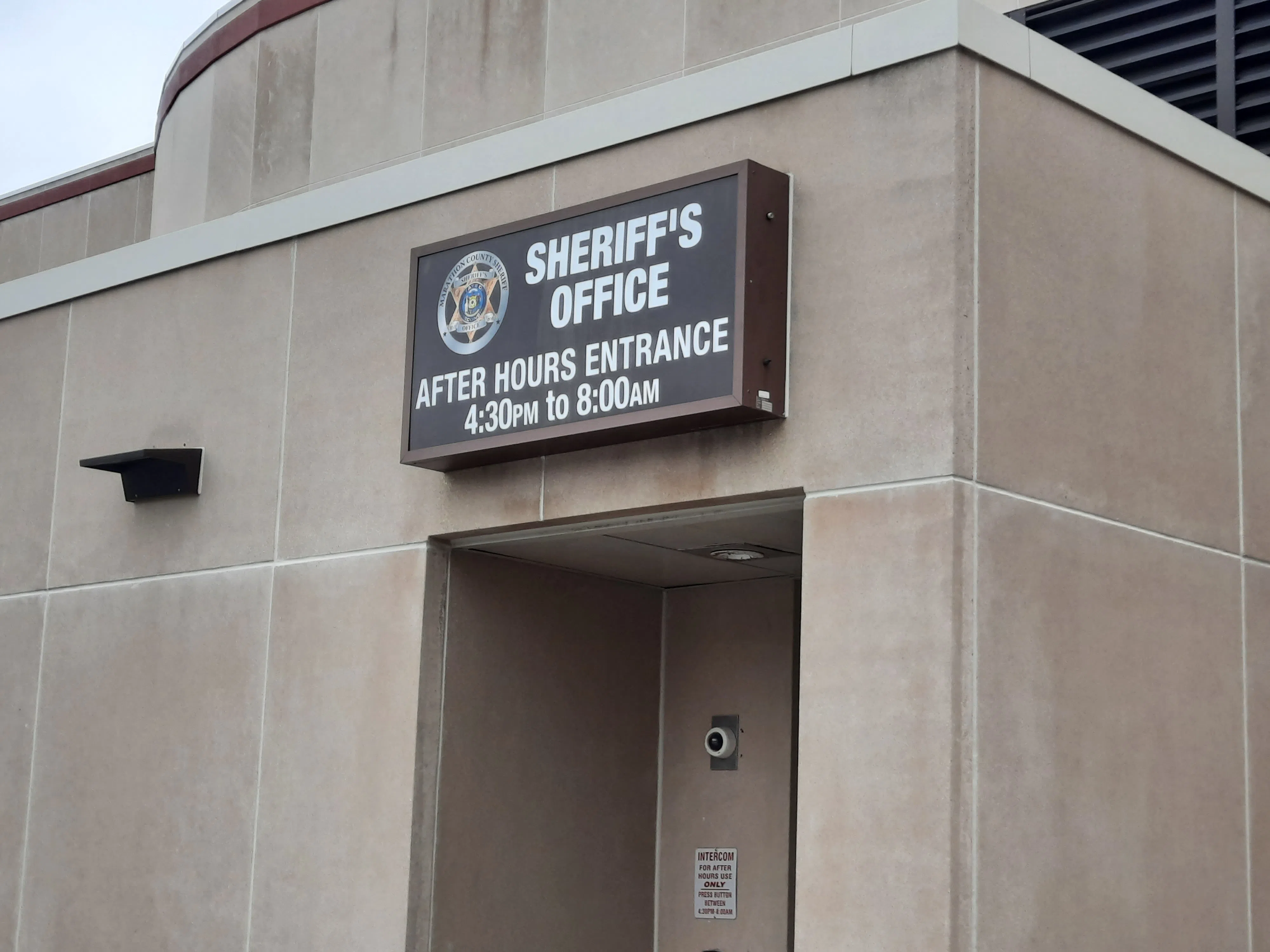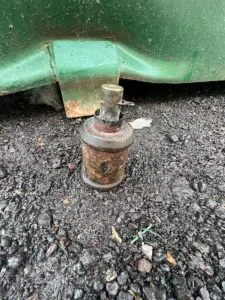
Marathon County Sheriff's Office. MWC photo by Mike Leischner
WAUSAU, WI (WSAU) — The Marathon County Bomb Squad was dispatched to Ashland on Saturday after a worker at a Goodwill Sorting Center found what turned out to be a live hand grenade in a donation bin.
Ashland Police Lieutenant Brandon Marten says they got the call about 12:30 PM from a manager at the facility who immediately recognized that the item could be dangerous. By then they had already isolated it and started clearing the building. Once they had a perimeter established they opened up communications with the Wausau-based Bomb Squad to evaluate the situation.
“We sent them some pictures and they believed it was a grenade, but couldn’t tell from the pictures if it was live or not. Their opinion was that it was live and could be very unstable, so they responded,” said Marten. “They transported it to a safe area to detonate it, and based on the explosion from the grenade they believe it was live prior to [detonation.]”
Officials with Goodwill figured that the item came from the Duluth, Minnesota area. Lieutenant Martin says their investigation shows there was no malicious intent with the donation. It appears it may have been in someone’s personal collection for decades before being dropped off as part of a larger donation.
The item was ultimately identified as a Japanese Type 99 grenade from the WWII era.
Bomb Squad Commander Mike Allard says officials with both Goodwill and the Ashland Police Department handled the situation exactly as they should have; by first recognizing

Japanese type 99 grenade found at the Ashland, WI Goodwill donation center. Image courtesy: Ashland PD/WAOW TV
that the device could be dangerous, then isolating it and clearing the scene. “I don’t want them to handle it,” said Allard. “Leave it where it is and call your local authorities, be that the Marathon County Sheriff’s Office or whatever jurisdiction you live in give that agency a call and they can request our team”
Allard says his team is the only certified bomb squad for all of Central and Northwestern Wisconsin. Their territory covers two dozen counties from Stevens Point to Eau Claire and Hudson, then north to the Michigan border and Superior. He says the team typically receives about 60 calls per year, and when they aren’t on the run the squad is working to stay sharp. “To maintain certification we have to train 288 hours per year, which breaks down to 24 hours per month. They [also] have to attend a 40-hour class, and re-certify every three years.”
Members of the squad also go through a six-week specialized training at the hazardous device school in Huntsville, Alabama before joining the team.
Allard adds that anyone who tries to transport something like that on their own is putting themselves and others in a dangerous situation because of the unstable nature of aged explosives. Such decisions should be left up to the Bomb Squad, who can determine if the device is safe to move. “There are a lot of different things that go into [determining] how we will handle it. It may be we confiscate it and take it back with us to dispose of it later, or if the need arises we may need to dispose of it right there.
“We won’t even risk handling it unless we are certain it is safe to handle. Once we have made that determination we have tools such as a containment trailer that we can use to transport things safely,” added Allard.
Information obtained by WAOW TV was used in this report







Comments